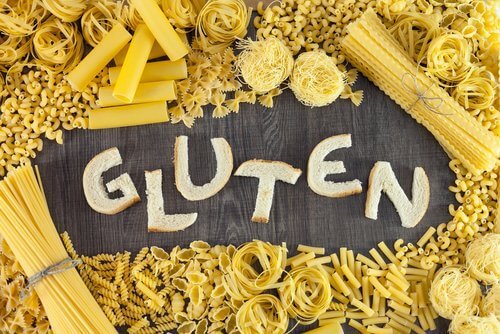5 Signs of Gluten Intolerance and What to Do About It


Reviewed and approved by the doctor José Gerardo Rosciano Paganelli
We are learning more and more each day about the signs of gluten intolerance. Along with the increase in diagnosed cases, many people have begun to wonder whether they should eliminate gluten from their diet.
Some people have even chosen to do so, even without detecting any problems. For this reason, we wanted to dedicate an article to the subject.
We think it’s important to explain the key signs that appear if you’re having trouble metabolizing gluten.
First of all, you need to know that gluten intolerance and celiac disease are two different things.
While in the first case there are some symptoms that are obvious, with celiac disease an entire autoimmune process is triggered.
With celiac disease, there are a whole series of adverse reactions that run through the body to warn you that something is wrong. It can be so intense that your life could be in danger during any one of these crises.
When you simply have signs of gluten intolerance, on the other hand, the side effects can be annoying but are rarely life threatening.
So, what is gluten?
It is defined as a glycoprotein. Gluten binds molecules of water together so that it gels the food that you eat.
The result is that digestion becomes more difficult, because breaking down the food you eat becomes much more complicated. Regardless of whether they are processed foods or not, cereals have the highest gluten content of all.
For this reason, doctors recommend checking the labels of your foods carefully, whether you’re gluten intolerant or have celiac disease.
Different signs of gluten intolerance
1. Digestive discomfort

You could occasionally feel bloated, while at other times you might experience bouts of constipation. This could be followed by suffering from colitis, even if you haven’t changed your diet.
See also: How to Use Cloves in Natural Remedies to Improve Digestion
2. You have bumps on the skin of the backs of your arms
The scientific name for this phenomenon is keratosis pilaris, but you’ll know it better as “goosebumps”. As you’re aware, you can get goosebumps during intense emotional moments, maybe when listening to music or hearing about an emotional situation.
It can also occur, however, for no apparent reason on the backs of the arms.
If this happens to you on a regular basis, you might want to consider eliminating gluten from your diet. The cause of these episodes is a lack of vitamin A, derived from an inefficient synthesis of nutrients.
3. Fatigue

4. Dizziness or headaches
Neurological problems are very common in people who are sensitive to gluten or who have celiac disease. This is because the blood that reaches your brain doesn’t arrive in the state that it should, causing disorders in the region.
Unlike what happens in the other cases mentioned, the response is not immediate, so monitoring yourself will only be useful if you never consume glycoprotein.
If you notice some improvements, in all likelihood you’ll need to eliminate gluten from your diet.
We recommend reading: Common causes of morning headaches
5. Hormonal complications
The most common hormonal problems that are caused by an intolerance to gluten are:
- Excessive premenstrual syndrome
- Polycystic ovaries
- Infertility without apparent cause
When these problems are linked to gluten, a gynecologist will be able to offer you some solutions. Remember that you need to visit your doctor once a year.
Gluten intolerance and celiac disease are easy to detect from a medical point of view. Therefore, if you’ve identified any of these signs, you should go to a specialist to get the right diagnosis.
Fortunately, there are many products that are now available for people who have these conditions.
In addition to that, major brands are making efforts to increase the supply of gluten free foods every day. The issues from a few years ago are already history.
All cited sources were thoroughly reviewed by our team to ensure their quality, reliability, currency, and validity. The bibliography of this article was considered reliable and of academic or scientific accuracy.
- Igbinedion SO., Ansari J., Vasikaran A., Gavins FN., et al., Non celiac gluten sensitivity: all wheat attack is not celiac. World J Gastroenterol, 2017. 23 (40): 7201-7210.
- Losurdo G., Principi M., Iannone A., Amoruso A., et al., Extra intestinal manifestations of non celiac gluten sensitivity: an expanding paradigm. World J Gastroenterol, 2018. 24 (14): 1521-1530.
This text is provided for informational purposes only and does not replace consultation with a professional. If in doubt, consult your specialist.








